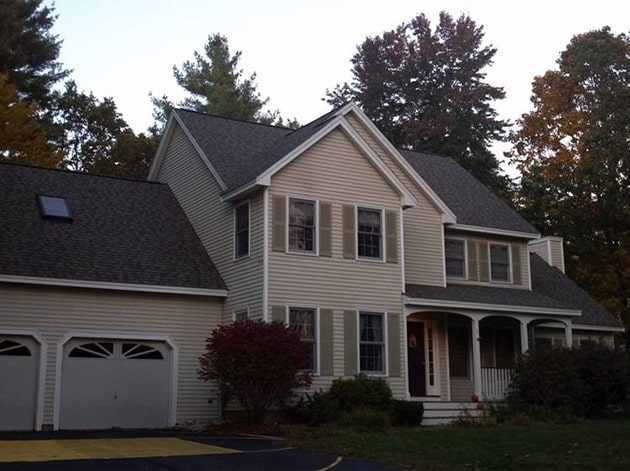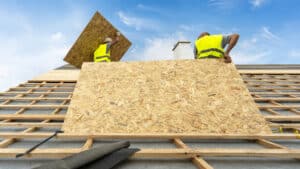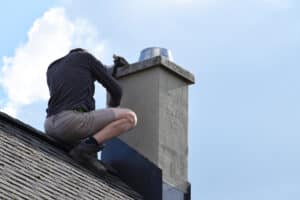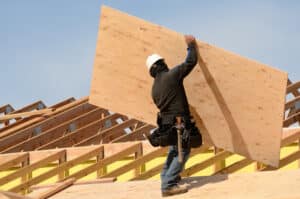Asphalt shingles can provide adequate protection and a fairly attractive look at a fraction of the cost of other roofing materials. It isn’t as durable and long lasting as some other roofing materials, such as metal, slate, or clay tiles. Despite this, asphalt shingles are a more popular choice for homeowners looking to do a re-roofing job on a budget.
There are two types of asphalt shingles, organic and fiberglass. Organic shingles are based on waste paper saturated with asphalt to make it waterproof, with coatings of adhesive salt and ceramic granules embedded on top. Fiberglass shingles are made with a base layer of glass fiber reinforcing mat. It is coated with asphalt which contains mineral fillers and makes the shingle waterproof.
Organic shingles are more durable than fiberglass, but they are also more flammable. They are less environmentally-friendly due to their high asphalt content. Fiberglass shingles offer fire protections and are more commonly used.
In the short term, this is the most affordable roofing option. In most cases, a properly installed asphalt shingles roof will provide your home with at least 12 to 15 years of a decent level of protection.
They are also available in three profiles. 3-Tab, Laminated, and Premium. You can choose an option that will be a good match if you are willing to pay more. Architectural shingles provide a 3-dimensional look to your roof, imitating the look of natural wood or slate shingles. Asphalt shingles also come in many colors so you can create a custom look to enhance the appearance of your home.
Asphalt shingles are light weigh enough to be installed on almost any roof without requiring additional structural support. With no major preparation work required during installation, a typical composition shingles roof can be installed in a matter of days.
There are disadvantages of asphalt shingles. They can get damaged if installed at below freezing temperatures. Attic ventilation issues can cause damage to them. Cheaper grades of asphalt shingles are susceptible to wind uplift. Asphalt shingles are not resistant to extreme temperature variations, which causes expansions and contractions of the shingle, ensuing in cracking.
Shingles perform better in cooler climates rather than hot temperature conditions. Extreme heat causes shingles to crack and lose color. Regular maintenance and repairs are required and are better done before it rains or snows to prevent further damage. They are not environmentally friendly either. They are a petroleum based product. Manufacturing of shingles wastes a lot of energy and exacerbates greenhouse gas emissions. Old asphalt shingles don’t get recycled, and regularly end up in landfills.




